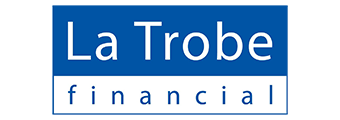There are around one million trusts in Australia and the number is steadily growing. Purchasing an invest property through a trust offers significant tax and asset protection benefits.
However, regulations around trusts can be complex and you need to be aware of these before making investments through them.
Here’s a quick guide to buying property through a trust, including some of the advantages and what to watch out for.
What is a trust?
According to the Australian Taxation Office, a trust is an obligation on a person, or entity, to hold property for the benefit of beneficiaries. It essentially means one person (or company) will look after the property and distribute the wealth from the asset to the other people in the trust.
Trusts tend to sound more complicated than they are in practice because of the highfalutin jargon people use when talking about them, such as the titles given to the people involved. Here’s a few of them:
-
The settlor is the person or company who set up the trust, and names the trustee and beneficiaries. They’re not permitted to be a beneficiary and are usually a lawyer or accountant who has no ties to the trust upon finishing its creation.
-
The trustee is the person or company who owns and controls the asset in the trust. There can be more than one trustee in a trust and they are charged with always acting in the best interests of the beneficiaries. Any - and all - transactions are in the trustee's name.
-
The beneficiary or beneficiaries are the people or companies for whom the trust is set up for. Assets are owned for them and they receive the income from them, provided there is some.
When a trust is started, the settlor will create the trust deed which sets out how the trustee is to run the trust.
Types of trusts
Trusts can vary greatly in how they’re run and for what purpose, but there are a few main types which include:
-
Discretionary trust: The most common type of trust, a discretionary trust is one where the trustee controls the distribution of income from the trust to the beneficiaries, i.e. it is at the trustee’s discretion. Discretionary trusts are called family trusts if the members are related. They’re popular in this regard for family tax purposes.
-
Unit trust: Unlike a discretionary trust where the beneficiaries do not have a defined income entitlement, the beneficiaries in a unit trust do. The trust’s assets are separated into units for the beneficiaries or unit-holders of the trust, a bit like shares in a company. The trustee must then distribute the income from assets to the beneficiaries in proportion with the number of units they have. This type of trust is common for joint ventures, like two families owning property together.
-
Hybrid trust: This is a mix between a discretionary and unit trust where beneficiaries still hold units but the income they receive from these is at the discretion of the trustee.
-
SMSF: A self-managed superannuation fund (SMSF) is a trust used by people to manage their own super.
Related: Buying property through an SMSF
| Lender | Home Loan | Interest Rate | Comparison Rate* | Monthly Repayment | Repayment type | Rate Type | Offset | Redraw | Ongoing Fees | Upfront Fees | Max LVR | Lump Sum Repayment | Extra Repayments | Split Loan Option | Tags | Features | Link | Compare | Promoted Product | Disclosure |
|---|---|---|---|---|---|---|---|---|---|---|---|---|---|---|---|---|---|---|---|---|
6.49% p.a. | 6.51% p.a. | $3,157 | Principal & Interest | Variable | $null | $230 | 70% |
| Promoted | Disclosure | ||||||||||
6.74% p.a. | 6.79% p.a. | $3,240 | Principal & Interest | Variable | $0 | $220 | 70% | Disclosure | ||||||||||||
6.75% p.a. | 7.16% p.a. | $3,243 | Principal & Interest | Variable | $30 | $null | 80% | |||||||||||||
6.59% p.a. | – | $3,190 | Principal & Interest | Variable | $0 | $995 | 80% | |||||||||||||
6.99% p.a. | 7.01% p.a. | $3,323 | Principal & Interest | Variable | $0 | $230 | 80% |
| Promoted | Disclosure |
Why buy property through a trust?
There are a number of potential advantages that can come with buying property through a trust which may be attractive to investors:
Tax benefits
A trust should have its own tax file number and is required to lodge a tax return. However, if the trustee distributes all the income made from an investment property in the financial year to the beneficiaries of the trust, it is considered part of the beneficiaries' income, and hence part of the tax return they lodge. Given that some beneficiaries will be in lower tax brackets than others, this distribution of wealth can provide a considerable tax break and save the members a huge amount compared to if they had bought an investment property in their own names.
Asset protection
In a trust, the trustee is the owner of all of the assets. So if you’re a beneficiary receiving income from an investment property and you happen to go broke or face legal action, that investment property may be more protected from creditors or the law. This one of the biggest advantages of owning property through a trust.
Profit distribution
Trusts can make it incredibly easy to distribute the wealth from investment properties as the trustee is legally obliged to act in the beneficiaries' best interests. This is particularly true in the case of unit trusts, as there is an entitled amount for each beneficiary based on the number of units they own. This can prevent someone in a joint venture hoarding income or not distributing it correctly.
Estate planning
Trusts make it simple to transfer the ownership of property when someone is sick, has a disability, or has died. The trust deed outlines how the trustee should proceed in such circumstances, preventing legal drama which can often occur, especially within families. In some cases, the transfer of property in a trust when someone has died is exempt from some taxes and government expenses.
Finance for buying property through a trust
It’s possible to get a loan to buy an investment property through a trust, but it can also be difficult. That’s because some lenders see trusts as higher risk due to the complex legal frameworks which come with them. Additionally, it may be harder for the lender to recover the property should the trust default on the loan, due to the asset protection a trust provides.
As a result, some lenders will not lend to trusts at all, while many others take applications on a case-by-case basis.
Generally, prospective lenders will review what kind of trust is applying, the credit data of all of the members of the trust, and the trust itself. Some lenders may also require all the beneficiaries to be guarantors on the loan. They’ll also review the trust deed to understand the purpose of the trust and whether the trustee has the power to apply for a loan, as the loan will be in the trustee’s name.
Given the complexity of trusts, many lenders will process loan applications through their business banking divisions. This can often mean higher rates and higher fees, as well as a longer application processing time.
What to be careful of when buying property through a trust
There are a number of potential pitfalls to be aware of when it comes to buying property through a trust:
No negative gearing tax concessions
If the income you make on an investment property is less than the expenses it incurs, then you’re making a loss. Negative gearing allows you to subtract these losses from your taxable income, reducing the tax you pay and your losses. However, a trust is not able to do this. If the property makes a loss, that loss is essentially trapped inside the trust. Beneficiaries will have to pay off that loss with cash if required, or that loss will simply be carried forward until income from the trust can recoup the losses.
Related: How is rental income taxed?
Transfer of property
If you purchase an investment property in your own name and then transfer ownership of it into a trust, you’ll have to pay stamp duty on the property. You’ll also have to pay capital gains tax (CGT) which could be very expensive if you’ve owned the property for less than a year.
Time constraints of profit distribution
New financial years start on July 1 each year. If all the profits the trust has made in that time haven’t been distributed to the beneficiaries by June 30, these profits will be taxed at the highest marginal tax rate.
Land tax-free threshold may not apply
Land tax is an annual tax on some investment properties levied by state and territory governments (except the Northern Territory). The laws vary between the jurisdictions but in some states, properties owned by trusts may be excluded from tax-free thresholds.
Number of trustees
Trusts are advantageous for asset protection. However, if there is only one trustee and the tenant of the investment property decides to take legal action against the owners for whatever reason, the trustee will be liable and the property at risk. It can be wise in some cases to have more than one trustee for this reason.
Savings.com.au’s two cents
Trusts can be a pretty complex subject, given the legal jargon and restrictions that come with them. But once you wrap your head around them, the advantages they offer can make a trust worth considering for property investment purposes.
Due to their complexity, it’s strongly advised to consult with a financial advisor, accountant, and/or lawyer prior to opening a trust or investing through one.
First published on September 2020
Photo by Stephen Leonardi on Unsplash
Original article by Alex Brewster








 Arjun Paliwal
Arjun Paliwal
 Denise Raward
Denise Raward













